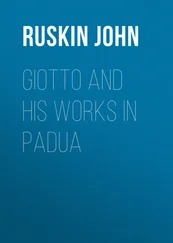John Ruskin - Selections From the Works of John Ruskin
Здесь есть возможность читать онлайн «John Ruskin - Selections From the Works of John Ruskin» — ознакомительный отрывок электронной книги совершенно бесплатно, а после прочтения отрывка купить полную версию. В некоторых случаях можно слушать аудио, скачать через торрент в формате fb2 и присутствует краткое содержание. Жанр: foreign_antique, foreign_home, literature_19, visual_arts, на английском языке. Описание произведения, (предисловие) а так же отзывы посетителей доступны на портале библиотеки ЛибКат.
- Название:Selections From the Works of John Ruskin
- Автор:
- Жанр:
- Год:неизвестен
- ISBN:нет данных
- Рейтинг книги:4 / 5. Голосов: 1
-
Избранное:Добавить в избранное
- Отзывы:
-
Ваша оценка:
- 80
- 1
- 2
- 3
- 4
- 5
Selections From the Works of John Ruskin: краткое содержание, описание и аннотация
Предлагаем к чтению аннотацию, описание, краткое содержание или предисловие (зависит от того, что написал сам автор книги «Selections From the Works of John Ruskin»). Если вы не нашли необходимую информацию о книге — напишите в комментариях, мы постараемся отыскать её.
Selections From the Works of John Ruskin — читать онлайн ознакомительный отрывок
Ниже представлен текст книги, разбитый по страницам. Система сохранения места последней прочитанной страницы, позволяет с удобством читать онлайн бесплатно книгу «Selections From the Works of John Ruskin», без необходимости каждый раз заново искать на чём Вы остановились. Поставьте закладку, и сможете в любой момент перейти на страницу, на которой закончили чтение.
Интервал:
Закладка:
Historically stating it, then, we should say: "The lake was sounded from the walls of the Castle of Chillon, and found to be a thousand feet deep."
Now, if Reynolds be right in his idea of the difference between history and poetry, we shall find that Byron leaves out of this statement certain un necessary details, and retains only the invariable,—that is to say, the points which the Lake of Geneva and Castle of Chillon have in common with all other lakes and castles.
Let us hear, therefore.
A thousand feet in depth below.
"Below"? Here is, at all events, a word added (instead of anything being taken away); invariable, certainly in the case of lakes, but not absolutely necessary.
The massy waters meet and flow.
"Massy"! why massy? Because deep water is heavy. The word is a good word, but it is assuredly an added detail, and expresses a character, not which the Lake of Geneva has in common with all other lakes, but which it has in distinction from those which are narrow, or shallow.
"Meet and flow." Why meet and flow? Partly to make up a rhyme; partly to tell us that the waters are forceful as well as massy, and changeful as well as deep. Observe, a farther addition of details, and of details more or less peculiar to the spot, or, according to Reynolds's definition, of "heavy matter, retarding the progress of the imagination."
So far the fathom line was sent.
Why fathom line? All lines for sounding are not fathom lines. If the lake was ever sounded from Chillon, it was probably sounded in mètres, not fathoms. This is an addition of another particular detail, in which the only compliance with Reynolds's requirement is, that there is some chance of its being an inaccurate one.
From Chillon's snow-white battlement.
Why snow-white? Because castle battlements are not usually snow-white. This is another added detail, and a detail quite peculiar to Chillon, and therefore exactly the most striking word in the whole passage.
"Battlement"! Why battlement? Because all walls have not battlements, and the addition of the term marks the castle to be not merely a prison, but a fortress.
This is a curious result. Instead of finding, as we expected, the poetry distinguished from the history by the omission of details, we find it consist entirely in the addition of details; and instead of being characterized by regard only of the invariable, we find its whole power to consist in the clear expression of what is singular and particular!
The reader may pursue the investigation for himself in other instances. He will find in every case that a poetical is distinguished from a merely historical statement, not by being more vague, but more specific; and it might, therefore, at first appear that our author's comparison should be simply reversed, and that the Dutch School should be called poetical, and the Italian historical. But the term poetical does not appear very applicable to the generality of Dutch painting; and a little reflection will show us, that if the Italians represent only the invariable, they cannot be properly compared even to historians. For that which is incapable of change has no history, and records which state only the invariable need not be written, and could not be read.
It is evident, therefore, that our author has entangled himself in some grave fallacy, by introducing this idea of invariableness as forming a distinction between poetical and historical art. What the fallacy is, we shall discover as we proceed; but as an invading army should not leave an untaken fortress in its rear, we must not go on with our inquiry into the views of Reynolds until we have settled satisfactorily the question already suggested to us, in what the essence of poetical treatment really consists. For though, as we have seen, it certainly involves the addition of specific details, it cannot be simply that addition which turns the history into poetry. For it is perfectly possible to add any number of details to a historical statement, and to make it more prosaic with every added word. As, for instance, "The lake was sounded out of a flat-bottomed boat, near the crab-tree at the corner of the kitchen-garden, and was found to be a thousand feet nine inches deep, with a muddy bottom." It thus appears that it is not the multiplication of details which constitutes poetry; nor their subtraction which constitutes history, but that there must be something either in the nature of the details themselves, or the method of using them, which invests them with poetical power or historical propriety.
It seems to me, and may seem to the reader, strange that we should need to ask the question, "What is poetry?" Here is a word we have been using all our lives, and, I suppose, with a very distinct idea attached to it; and when I am now called upon to give a definition of this idea, I find myself at a pause. What is more singular, I do not at present recollect hearing the question often asked, though surely it is a very natural one; and I never recollect hearing it answered, or even attempted to be answered. In general, people shelter themselves under metaphors, and while we hear poetry described as an utterance of the soul, an effusion of Divinity, or voice of nature, or in other terms equally elevated and obscure, we never attain anything like a definite explanation of the character which actually distinguishes it from prose.
I come, after some embarrassment, to the conclusion, that poetry is "the suggestion, by the imagination, of noble grounds for the noble emotions." 40 40 Ruskin later wrote: "It leaves out rhythm, which I now consider a defect in said definition; otherwise good."
I mean, by the noble emotions, those four principal sacred passions—Love, Veneration, Admiration, and Joy (this latter especially, if unselfish); and their opposites—Hatred, Indignation (or Scorn), Horror, and Grief,—this last, when unselfish, becoming Compassion. These passions in their various combinations constitute what is called "poetical feeling," when they are felt on noble grounds, that is, on great and true grounds. Indignation, for instance, is a poetical feeling, if excited by serious injury; but it is not a poetical feeling if entertained on being cheated out of a small sum of money. It is very possible the manner of the cheat may have been such as to justify considerable indignation; but the feeling is nevertheless not poetical unless the grounds of it be large as well as just. In like manner, energetic admiration may be excited in certain minds by a display of fireworks, or a street of handsome shops; but the feeling is not poetical, because the grounds of it are false, and therefore ignoble. There is in reality nothing to deserve admiration either in the firing of packets of gunpowder, or in the display of the stocks of warehouses. But admiration excited by the budding of a flower is a poetical feeling, because it is impossible that this manifestation of spiritual power and vital beauty can ever be enough admired.
Farther, it is necessary to the existence of poetry that the grounds of these feelings should be furnished by the imagination . Poetical feeling, that is to say, mere noble emotion, is not poetry. It is happily inherent in all human nature deserving the name, and is found often to be purest in the least sophisticated. But the power of assembling, by the help of the imagination , such images as will excite these feelings, is the power of the poet or literally of the "Maker." 41 41 Take, for instance, the beautiful stanza in the Affliction of Margaret : I look for ghosts, but none will force Their way to me. 'T is falsely said That ever there was intercourse Between the living and the dead; For, surely, then, I should have sight Of him I wait for, day and night. With love and longing infinite. This we call Poetry, because it is invented or made by the writer, entering into the mind of a supposed person. Next, take an instance of the actual feeling truly experienced and simply expressed by a real person. "Nothing surprised me more than a woman of Argentière, whose cottage I went into to ask for milk, as I came down from the glacier of Argentière, in the month of March, 1764. An epidemic dysentery had prevailed in the village, and, a few months before, had taken away from her, her father, her husband, and her brothers, so that she was left alone, with three children in the cradle. Her face had something noble in it, and its expression bore the seal of a calm and profound sorrow. After having given me milk, she asked me whence I came, and what I came there to do, so early in the year. When she knew that I was of Geneva, she said to me, 'she could not believe that all Protestants were lost souls; that there were many honest people among us, and that God was too good and too great to condemn all without distinction.' Then, after a moment of reflection, she added, in shaking her head, 'But that which is very strange is that of so many who have gone away, none have ever returned. I,' she added, with an expression of grief, 'who have so mourned my husband and my brothers, who have never ceased to think of them, who every night conjure them with beseechings to tell me where they are, and in what state they are! Ah, surely, if they lived anywhere, they would not leave me thus! But, perhaps,' she added, 'I am not worthy of this kindness, perhaps the pure and innocent spirits of these children,' and she looked at the cradle, 'may have their presence, and the joy which is denied to me .'"—SAUSSURE, Voyages dans les Alpes , chap. xxiv. This we do not call Poetry, merely because it is not invented, but the true utterance of a real person. [Ruskin.]
Интервал:
Закладка:
Похожие книги на «Selections From the Works of John Ruskin»
Представляем Вашему вниманию похожие книги на «Selections From the Works of John Ruskin» списком для выбора. Мы отобрали схожую по названию и смыслу литературу в надежде предоставить читателям больше вариантов отыскать новые, интересные, ещё непрочитанные произведения.
Обсуждение, отзывы о книге «Selections From the Works of John Ruskin» и просто собственные мнения читателей. Оставьте ваши комментарии, напишите, что Вы думаете о произведении, его смысле или главных героях. Укажите что конкретно понравилось, а что нет, и почему Вы так считаете.












